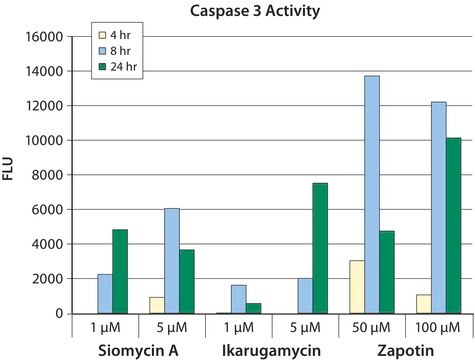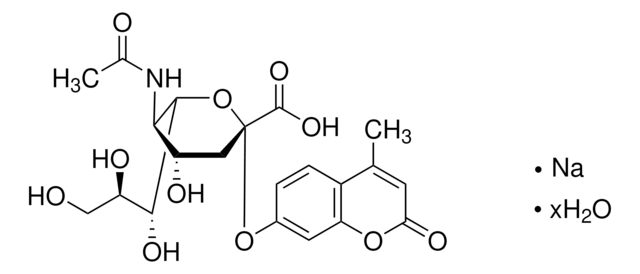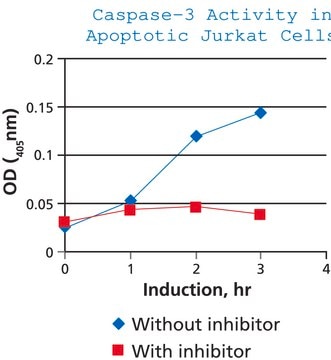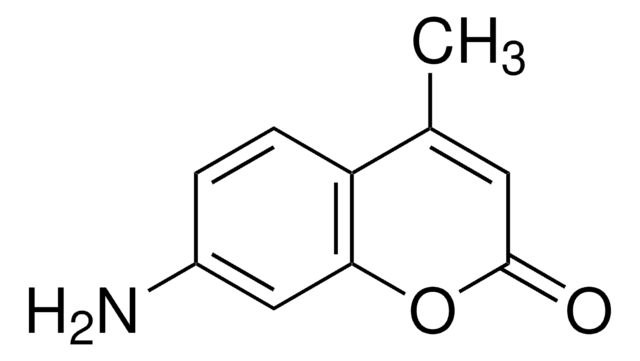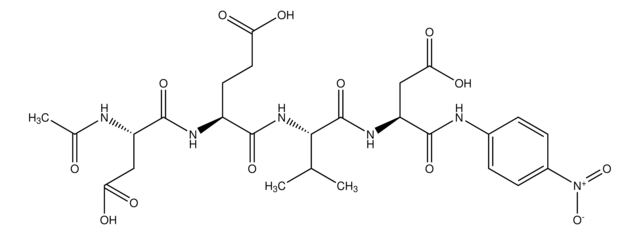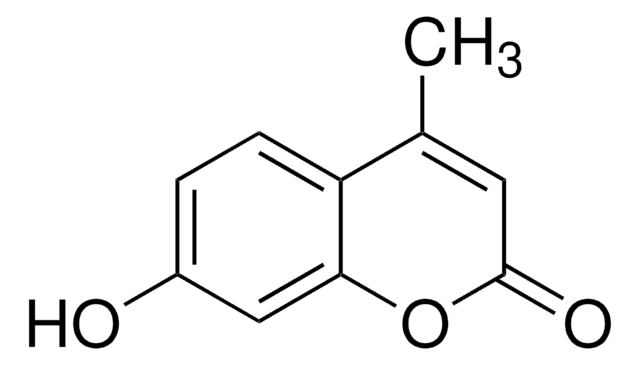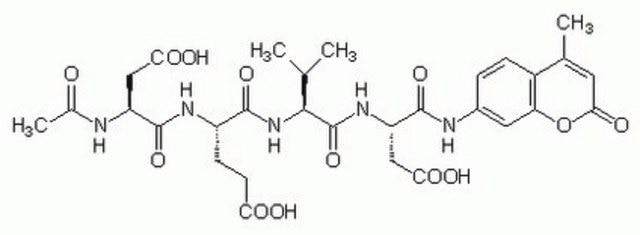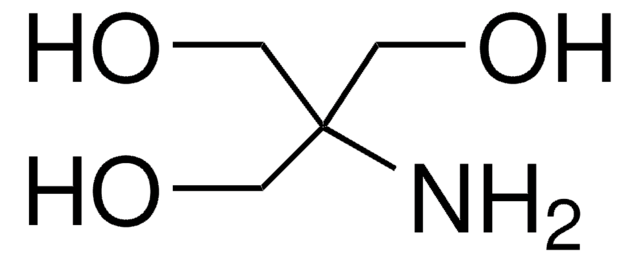A1086
N-Acetyl-Asp-Glu-Val-Asp-7-amido-4-methylcoumarin
≥97% (HPLC), powder
Synonym(s):
Ac-DEVD-AMC
About This Item
Recommended Products
Quality Level
assay
≥97% (HPLC)
form
powder
composition
Peptide content, ~65%
color
white
solubility
DMSO: 10 mM
storage temp.
−20°C
SMILES string
CC(C)[C@H](NC(=O)[C@H](CCC(O)=O)NC(=O)[C@H](CC(O)=O)NC(C)=O)C(=O)N[C@@H](CC(O)=O)C(=O)Nc1ccc2C(C)=CC(=O)Oc2c1
InChI
1S/C30H37N5O13/c1-13(2)26(35-27(44)18(7-8-22(37)38)33-29(46)19(11-23(39)40)31-15(4)36)30(47)34-20(12-24(41)42)28(45)32-16-5-6-17-14(3)9-25(43)48-21(17)10-16/h5-6,9-10,13,18-20,26H,7-8,11-12H2,1-4H3,(H,31,36)(H,32,45)(H,33,46)(H,34,47)(H,35,44)(H,37,38)(H,39,40)(H,41,42)/t18-,19-,20-,26-/m0/s1
InChI key
ALZSTTDFHZHSCA-RNVDEAKXSA-N
Application
Biochem/physiol Actions
Features and Benefits
related product
wgk_germany
WGK 3
flash_point_f
Not applicable
flash_point_c
Not applicable
ppe
Eyeshields, Gloves, type N95 (US)
Certificates of Analysis (COA)
Search for Certificates of Analysis (COA) by entering the products Lot/Batch Number. Lot and Batch Numbers can be found on a product’s label following the words ‘Lot’ or ‘Batch’.
Already Own This Product?
Find documentation for the products that you have recently purchased in the Document Library.
Customers Also Viewed
Related Content
Apoptosis, or programmed cell death (PCD), is a selective process for the removal of unnecessary, infected or transformed cells in various biological systems. As it plays a role in the homeostasis of multicellular organisms, apoptosis is tightly regulated through two principal pathways by a number of regulatory and effector molecules.
n proliferating cells, the cell cycle consists of four phases. Gap 1 (G1) is the interval between mitosis and DNA replication that is characterized by cell growth. Replication of DNA occurs during the synthesis (S) phase, which is followed by a second gap phase (G2) during which growth and preparation for cell division occurs. Together, these three stages comprise the interphase phase of the cell cycle. Interphase is followed by the mitotic (M) phase.
Our team of scientists has experience in all areas of research including Life Science, Material Science, Chemical Synthesis, Chromatography, Analytical and many others.
Contact Technical Service